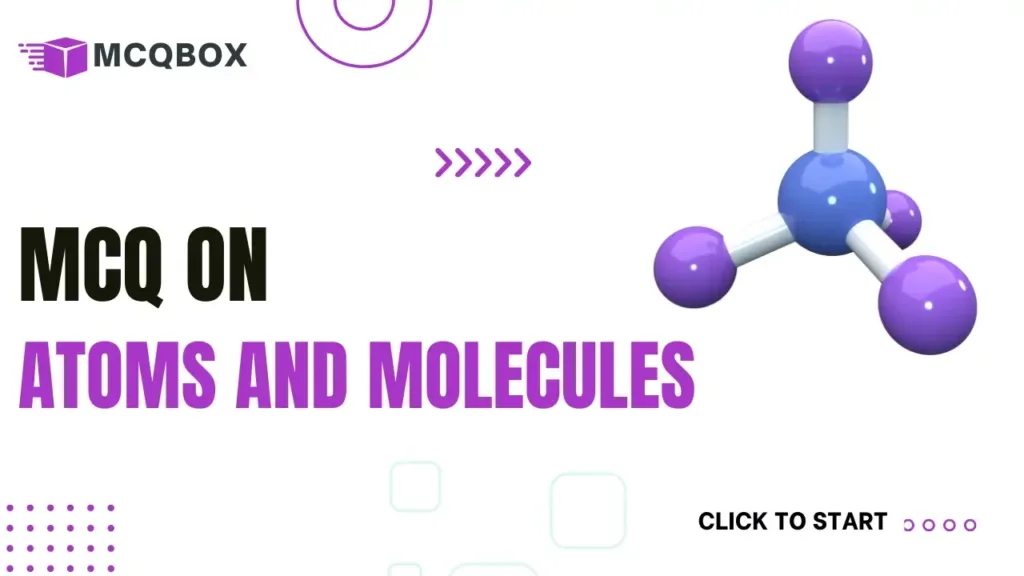Test your knowledge with this challenging MCQ on Atoms and Molecules! Get ready to learn and level up your understanding of the world around us. This topic is useful for the students Class 9th to 12th and for those preparing for Competitive Exams like UPSC , SSC and other State Level Exams

Table of Contents
MCQ on Atoms and Molecules
1. What is the smallest unit of an element that retains its properties?
A) Molecule
B) Atom
C) Proton
D) Neutron
Answer: B) Atom
2. What are atoms made up of?
A) Protons only
B) Electrons only
C) Protons, neutrons, and electrons
D) Neutrons only
Answer: C) Protons, neutrons, and electrons
3. What is the nucleus of an atom composed of?
A) Protons and electrons
B) Neutrons and electrons
C) Protons and neutrons
D) Neutrons and positrons
Answer: C) Protons and neutrons
4. What is a molecule?
A) The smallest unit of an element
B) A group of atoms bonded together
C) A subatomic particle
D) A type of ion
Answer: B) A group of atoms bonded together
5. Which force between atoms arises as a result of electron transfer?
A) Ionic bond
B) Covalent bond
C) Hydrogen bond
D) Van der Waals force
Answer: A) Ionic bond
6. What is the charge of a proton?
A) Positive
B) Negative
C) Neutral
D) Variable
Answer: A) Positive
7. Which subatomic particle has negligible mass?
A) Proton
B) Neutron
C) Electron
D) Positron
Answer: C) Electron
8. What is the atomic number of an element equal to?
A) Number of neutrons
B) Number of protons
C) Number of electrons
D) Sum of protons and neutrons
Answer: B) Number of protons
9. Which theory states that atoms are indivisible particles?
A) Einstein’s Theory of Relativity
B) Newton’s Laws of Motion
C) Dalton’s Atomic Theory
D) Bohr’s Atomic Model
Answer: C) Dalton’s Atomic Theory
10. Which of the following is an example of a molecule?
A) Neon (Ne)
B) Hydrogen (H)
C) Sodium chloride (NaCl)
D) Oxygen (O2)
Answer: D) Oxygen (O2)